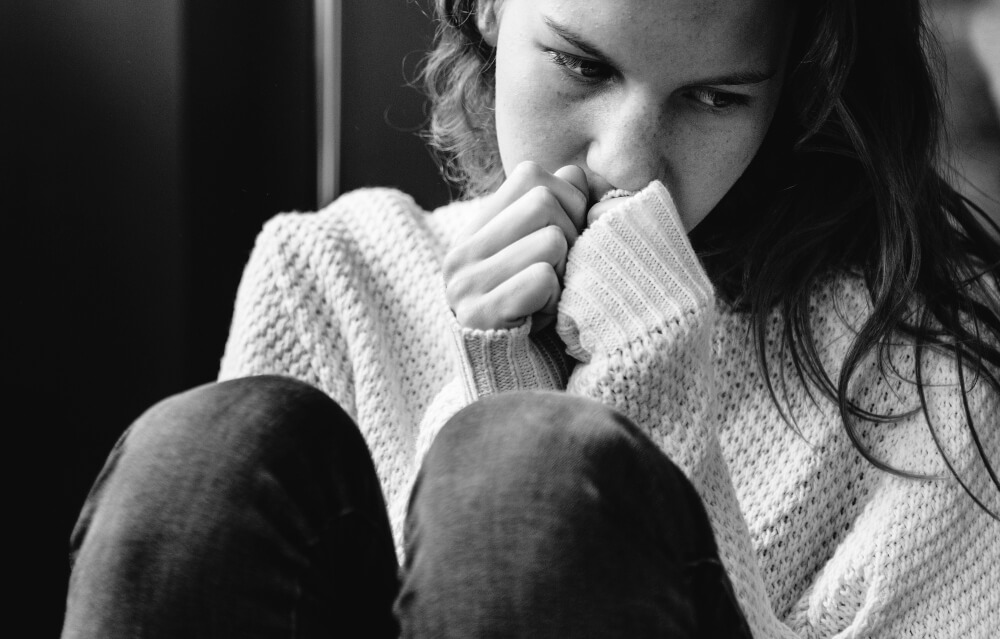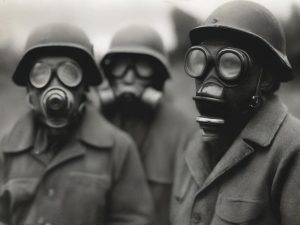It’s a question that has haunted humanity for centuries: Why do good people suffer? If the world is supposed to be just, why do kind, selfless, and compassionate individuals often face the most pain? It doesn’t seem fair, does it? And yet, if you look around, you’ll notice that some of the best people you know carry the heaviest burdens. Let’s talk about why that might be. Here are four reasons why good people often suffer, and why their suffering doesn’t diminish their goodness—it might even amplify it.
They Often Sacrifice Themselves For Others
Good people have this incredible tendency to put others before themselves. It’s like they’re wired to care deeply, to step in when someone is struggling, and to give without expecting anything in return. They’re the ones who will drop everything to help a friend in crisis, donate their last dollar to a cause they believe in, or stay up all night comforting someone who’s hurting. Their selflessness is one of the most admirable qualities a person can have—it’s what makes them the glue that holds relationships, families, and communities together.
But here’s the thing: this very trait, as beautiful as it is, can also be a source of deep suffering. When you’re constantly giving your time, energy, and resources to others, it’s easy to neglect your own well-being. Good people often pour so much of themselves into helping others that they forget to refill their own cup. They’ll go days, weeks, or even years without checking in with themselves, asking if they’re okay, or taking the time to rest and recharge. And over time, this imbalance takes a toll.
When you’re always giving without replenishing yourself, you risk burning out. You might wake up one day and realize you’re emotionally drained, physically exhausted, and mentally stretched too thin. It’s like running a marathon without ever stopping to drink water—eventually, your body will give out. Good people often reach this point because they’re so focused on lifting others up that they forget to care for themselves. They’ll push through fatigue, ignore their own needs, and keep smiling even when they’re hurting inside. And while their sacrifices make the world a better place, they sometimes pay a personal price for it.
What’s even harder is that good people are often taken advantage of. Not everyone appreciates their kindness or recognizes the cost of their generosity. Some people see their selflessness as an opportunity to exploit them—asking for more and more without ever giving back. Good people, because they’re so willing to help, often struggle to say no. They don’t want to let anyone down, so they keep giving, even when it’s at their own expense. This dynamic can leave them feeling used, unappreciated, and alone.
They See Themselves As Less Than Something Greater
Many good people are driven by a deep sense of purpose or a belief in something bigger than themselves. For some, it’s their faith—a connection to a higher power that guides their actions and gives their life meaning. For others, it’s their family—the love and responsibility they feel toward their children, parents, or siblings. And for some, it’s a cause they’re passionate about, like fighting for justice, protecting the environment, or helping those in need. This sense of purpose is what fuels their kindness, their generosity, and their willingness to make sacrifices for the greater good. It’s beautiful, really, to see someone live with such conviction and selflessness.
But here’s the flip side: this very devotion to something bigger can also lead to suffering. When you’re so focused on serving a higher purpose or supporting others, it’s easy to downplay your own needs, feelings, and desires. Good people often tell themselves, My role is to help, to serve, to give—not to take or to be served. They might see their own well-being as secondary, something that can be put on hold or ignored altogether. In their minds, the greater good always comes first, and their personal needs are an afterthought, if they’re considered at all.
This mindset can take a HEAVY toll. When you constantly prioritize others over yourself, you start to neglect your own worth. You might begin to believe that your value lies solely in what you can do for others, rather than in who you are as a person. Over time, this can lead to emotional exhaustion. You’re pouring so much of yourself into your purpose or the people you care about that you forget to replenish your own spirit. You might feel lonely, even in a crowd, because no one is pouring back into you the way you pour into them. And sometimes, you might even feel inadequate, like you’re never doing enough, even when you’re giving everything you have.

They Feel Deeply And Empathize Too Much
Good people are often highly empathetic. They have this incredible ability to step into someone else’s shoes and feel what they’re feeling—whether it’s joy, sorrow, fear, or pain. They don’t just sympathize; they truly feel the emotions of others, almost as if those emotions were their own. This deep empathy is what makes them so compassionate and kind. It’s what drives them to comfort a crying friend, to stand up for someone who’s being treated unfairly, or to go out of their way to help a stranger in need. Their ability to connect with others on such a profound level is a gift, not just to the people they care for, but to the world as a whole.
But here’s the thing: this gift of empathy can also be a heavy burden. When you’re constantly absorbing the emotions and struggles of those around you, it can weigh heavily on your heart. Good people don’t just carry their own challenges; they carry the challenges of others, too. They lie awake at night worrying about a friend who’s going through a tough time. They feel a knot in their stomach when they hear about someone else’s pain. They carry the weight of the world on their shoulders because they care so deeply about making it a better place. And while this makes them incredible friends, partners, and caregivers, it can also leave them emotionally drained.
Empathy doesn’t come with an off switch. Good people can’t just decide to stop feeling for others—it’s woven into who they are. But this constant emotional labor can take a toll. They might find themselves overwhelmed by the sheer volume of pain they witness, whether it’s in their personal lives or in the world at large. They might struggle to separate their own emotions from the emotions of others, leading to feelings of exhaustion, burnout, or even helplessness. And because they’re so focused on helping others, they might forget to check in with themselves, to ask how they’re doing, or to give themselves the same care and compassion they so freely give to others.
That said, good people need to remember that they can’t pour from an empty cup. It’s okay to take a step back, to set boundaries, and to prioritize your own emotional well-being. It’s okay to say, “I can’t carry this right now,” or to ask for help when you need it. Being empathetic doesn’t mean you have to take on the world’s pain all by yourself. It means you care deeply, but it also means you need to care for yourself, too.
They’re Often Targeted or Taken Advantage Of
It’s a harsh truth, but one that needs to be said: the world isn’t always kind to kind people. In fact, good people often find themselves targeted by those who see their kindness as a weakness. It’s as if their generosity, trust, and compassion make them an easy mark for those who are looking to take advantage. They might be manipulated by someone who knows just how far their willingness to help will stretch. They might be exploited by those who see their selflessness as an opportunity to get what they want without giving anything in return. Or worse, they might be mistreated by people who mistake their kindness for naivety, assuming they can get away with bad behavior because “good people don’t fight back.”
What makes this even more painful is that good people often have an innate willingness to see the best in others. They give people the benefit of the doubt, even when red flags are waving. They believe in second chances, even when someone has proven themselves unworthy of trust. And while this optimism is one of their most beautiful qualities, it can also leave them vulnerable. Their open hearts and trusting nature can sometimes backfire, leaving them hurt, disappointed, or even betrayed by those they thought they could rely on.

This doesn’t mean they should stop being good. Kindness is not the problem—it’s the people who exploit it. Good people shouldn’t have to harden their hearts or close themselves off to protect themselves from the world. But it does mean that their goodness sometimes makes them an easy target for those who don’t share the same values. It’s a painful reality, but one that good people often face.
The irony is that the very qualities that make them targets—their empathy, their generosity, their willingness to help—are also the qualities that make the world a better place. Without good people, the world would be a colder, darker, and more selfish place. Their kindness is a light, even if it sometimes attracts those who try to dim it.
So, What’s the Silver Lining?
While it’s heartbreaking to see good people suffer, there’s something important to remember: their suffering doesn’t define them. In fact, it often reveals their strength, resilience, and capacity for love. Good people suffer not because they’re weak, but because they’re brave enough to care deeply, give selflessly, and stand for something greater than themselves. Their suffering is a testament to their humanity, and it’s what makes their goodness so extraordinary.
If you’re one of those good people who’s been through hard times, know this: your suffering doesn’t mean you’re doing something wrong. It might just mean you’re doing something right. The world needs your kindness, your empathy, and your light—even if it comes at a cost. And while it’s okay to prioritize yourself and set boundaries, never let the pain you’ve experienced dim the goodness within you. After all, it’s your goodness that makes the world a better place, even when it’s not easy.
So, why do good people suffer? Maybe it’s because they’re the ones strong enough to bear it—and kind enough to keep going anyway.





